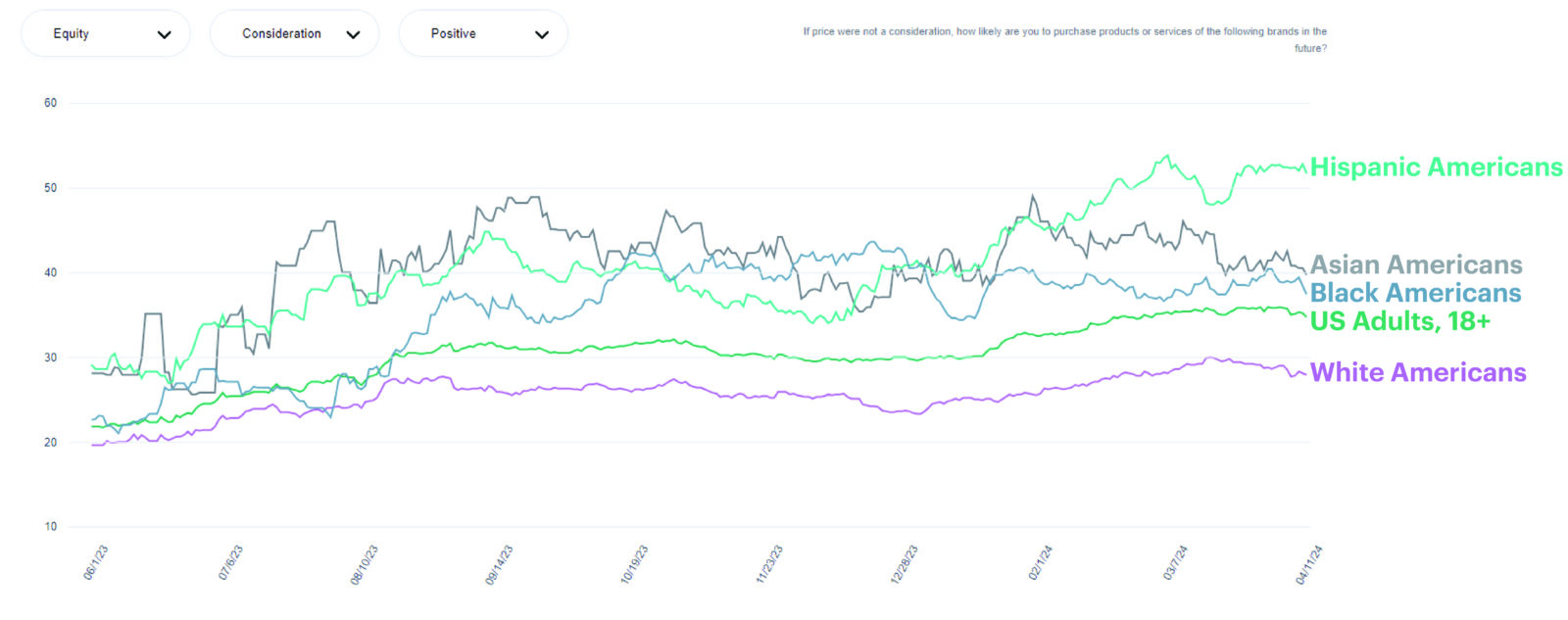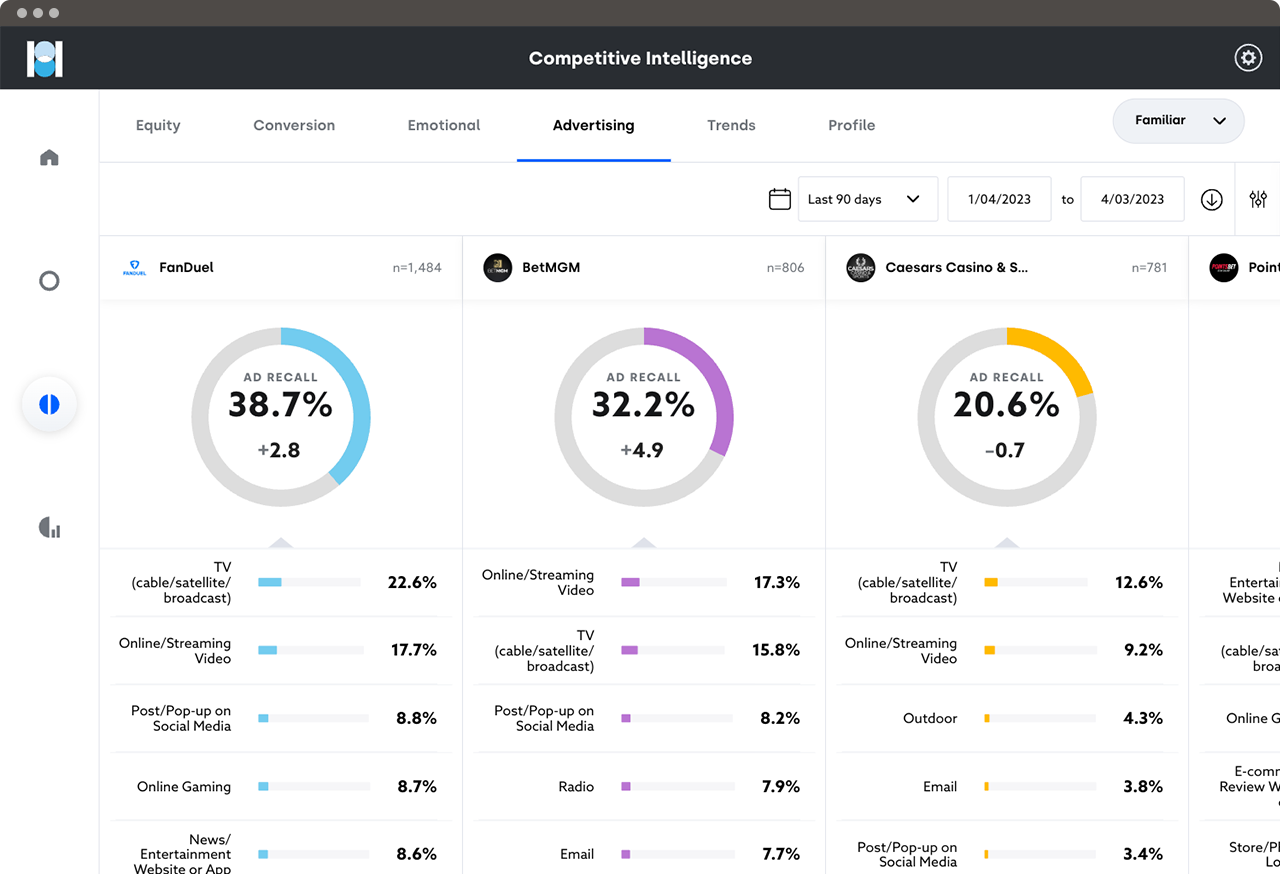Brief • 3 min Read

Since its launch in November 2022, millions of Americans have experimented with OpenAI’s ChatGPT. In early 2023, ChatGPT was declared the “fastest growing app of all time;” it acquired 100 million monthly users in just two months. In contrast, it took TikTok nine months and Instagram 2.5 years to reach this many monthly users.
ChatGPT uses have widely varied – from generating silly stories to completing school and work assignments. Predictably, younger Americans have used ChatGPT at higher rates than older Americans. More interestingly, we have seen disparate use across racial groups.
Minority groups – Asian, Black, and Hispanic Americans, have used ChatGPT at higher rates than White Americans.
ChatGPT – Positive Consideration By Race – 12 Week Moving Average

QuestBrand. 6/1/23-4/11/24. Base: General population of US adults, ages 18+, n=8,214. Base: Asian Americans, n=539. Base: Hispanic Americans, n=1,402. Base: White Americans, n=5,033. Base: Black Americans, n=1,062.
We see this use pattern reflected in data from QuestBrand by The Harris Poll. The graph above tracks the percentage of US adults across different racial groups who report positive consideration of ChatGPT. The trend lines show that Hispanic, Asian, and Black Americans more often consider using ChatGPT than White Americans.
In addition to varying interest levels in using ChatGPT, racial groups ascribe different attributes to the ChatGPT brand. For example, Hispanic and Asian Americans are more likely than White Americans to describe ChatGPT as “Innovative,” “Smart,” and “Intelligent.” See the chart below for a closer look at how Americans from different racial backgrounds describe the popular chatbot.
QuestBrand. 1/1/24-3/31/24. Base: General population of US adults, ages 18+, n=2,607. Base: Asian Americans, n=200. Base: Hispanic Americans, n=484. Base: White Americans, n=1,489. Base: Black Americans, n=381.
While using different adjectives to describe a brand may not seem monumental, these differences reflect the brand's perceived value proposition. This brand perception translates into consumers' interest in using or promoting a brand.
Despite its popularity among minority groups, many warn that ChatGPT's responses perpetuate racial and cultural biases. To fix this, OpenAI is working to expand the viewpoints/perspectives used to train their AI model. Perpetuating stereotypes is not a problem unique to ChatCPT; it extends across all AI chatbots.
With more time and research, we hope that these systems will continue to eliminate inherent bias. If companies want minorities to continue to embrace this technology, it will be an imperative improvement in the near future.
Subscribe for more Insights
Subscribe to our newsletter for the latest trends in business, politics, culture, and more.

Related Content









